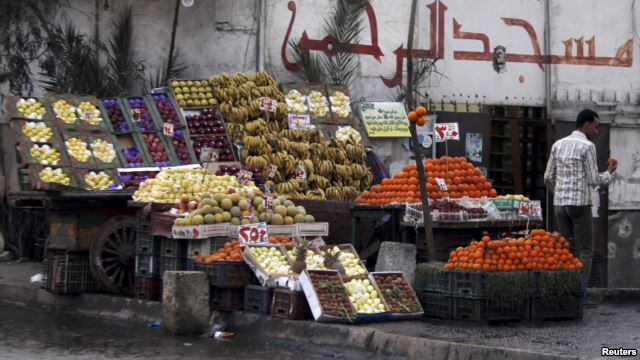CAIRO, Dec 11: Egyptian urban consumer inflation soared in November to its highest annual rate in nearly four years, increasing the risk of social unrest and potentially setting up a policy dilemma for the central bank.
Crippled by political turmoil since a popular uprising toppled autocrat Hosni Mubarak in 2011, Egypt’s economy expanded just 2.1 percent in the year to June 30.
The central bank has cut interest rates three times by a total of 150 basis points since the army deposed Islamist President Mohamed Mursi in July, most recently – and unexpectedly – by 50 basis points at a meeting last week. The bank said then it was more concerned about boosting growth than taming inflation.
But urban consumer prices rose 13 percent in November year on year, state statistics agency CAPMAS said on Tuesday, the highest rate of increase since January 2010 and well up on October’s 10.4 per cent.
Food costs, some of which are already heavily subsidised by the government, contributed to the increase.
‘At the moment, the central bank is stuck, because it’s trying to cut the yield on government debt and at the same time help stimulate the economy and keep inflation in check,’ said Angus Blair, chairman of business and economic forecasting think-tank Signet. ‘You’ve got an economic dilemma which they have to try and tackle.’
Spokespeople at the central bank could not immediately be reached for comment on the data, which also showed monthly inflation at 0.9 per cent.
But in a statement accompanying Thursday’s rate cut decision, it had acknowledged the possibility of higher inflation, referring to an unfavourable base effect caused by low inflation rates at the end of last year.
‘While upside risks to the inflation outlook continue to moderate as the possibility of a rebound in international food prices is unlikely in light of recent global developments, annual inflation could increase above … current levels in November and December,’ it said.
Egypt’s core inflation rate, which strips out subsidised goods and volatile items including fruit and vegetables, rose to 11.95 percent in the year to November, the central bank said today, up from 11.15 percent in October.
RISING FOOD PRICES
The price index for urban food and non-alcoholic beverages rose by almost 20 percent annually. That for hotels, cafes and restaurants gained more than 22 percent, CAPMAS data showed.
‘Clearly in a period where there is a restive population, people expect a better standard of living, and it’s likely that there will be social repercussions if inflation continues to run at these levels,’ Blair said.
More than 26 per cent of Egyptians live below the poverty line, according to the latest CAPMAS data, and the government is hooked on a subsidy regime under which it spends a fifth of its budget keeping energy and some food prices, including bread, well below market cost.
It has also launched a 4.3 billion dollar stimulus package, aided by over $12 billion in aid pledged by Arab Gulf countries, since the army ousted Islamist President Mohamed Mursi in July following mass protests against his rule.
Egyptian Investment Minister Osama Saleh said the government plans to launch a second 24 billion-pound package in January.
The budget reached a deficit of around 14 percent of GDP in the year to June 30, though Thursday’s rate cut promises to ease pressure on government finances, with debt yields having fallen at two auctions since then.
(AGENCIES)


